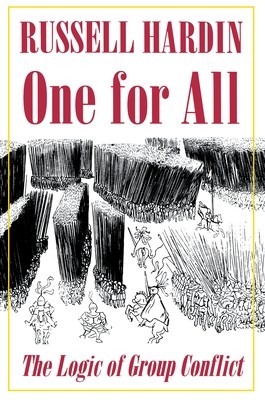
- We will send in 10–14 business days.
- Author: Russell Hardin
- Publisher: Princeton University Press
- ISBN-10: 0691048258
- ISBN-13: 9780691048253
- Format: 15.5 x 23.1 x 2 cm, minkšti viršeliai
- Language: English
- SAVE -10% with code: EXTRA
Reviews
Description
In a book that challenges the most widely held ideas of why individuals engage in collective conflict, Russell Hardin offers a timely, crucial explanation of group action in its most destructive forms. Contrary to those observers who attribute group violence to irrationality, primordial instinct, or complex psychology, Hardin uncovers a systematic exploitation of self-interest in the underpinnings of group identification and collective violence. Using examples from Mafia vendettas to ethnic violence in places such as Bosnia and Rwanda, he describes the social and economic circumstances that set this violence into motion. Hardin explains why hatred alone does not necessarily start wars but how leaders cultivate it to mobilize their people. He also reveals the thinking behind the preemptive strikes that contribute to much of the violence between groups, identifies the dangers of "particularist" communitarianism, and argues for government structures to prevent any ethnic or other group from having too much sway.
Exploring conflict between groups such as Serbs and Croats, Hutu and Tutsi, Northern Irish Catholics and Protestants, Hardin vividly illustrates the danger that arises when individual and group interests merge. In these examples, groups of people have been governed by movements that managed to reflect their members' personal interests--mainly by striving for political and economic advances at the expense of other groups and by closing themselves off from society at large. The author concludes that we make a better and safer world if we design our social institutions to facilitate individual efforts to achieve personal goals than if we concentrate on the ethnic political makeup of our respective societies.EXTRA 10 % discount with code: EXTRA
The promotion ends in 21d.09:40:13
The discount code is valid when purchasing from 10 €. Discounts do not stack.
- Author: Russell Hardin
- Publisher: Princeton University Press
- ISBN-10: 0691048258
- ISBN-13: 9780691048253
- Format: 15.5 x 23.1 x 2 cm, minkšti viršeliai
- Language: English English
In a book that challenges the most widely held ideas of why individuals engage in collective conflict, Russell Hardin offers a timely, crucial explanation of group action in its most destructive forms. Contrary to those observers who attribute group violence to irrationality, primordial instinct, or complex psychology, Hardin uncovers a systematic exploitation of self-interest in the underpinnings of group identification and collective violence. Using examples from Mafia vendettas to ethnic violence in places such as Bosnia and Rwanda, he describes the social and economic circumstances that set this violence into motion. Hardin explains why hatred alone does not necessarily start wars but how leaders cultivate it to mobilize their people. He also reveals the thinking behind the preemptive strikes that contribute to much of the violence between groups, identifies the dangers of "particularist" communitarianism, and argues for government structures to prevent any ethnic or other group from having too much sway.
Exploring conflict between groups such as Serbs and Croats, Hutu and Tutsi, Northern Irish Catholics and Protestants, Hardin vividly illustrates the danger that arises when individual and group interests merge. In these examples, groups of people have been governed by movements that managed to reflect their members' personal interests--mainly by striving for political and economic advances at the expense of other groups and by closing themselves off from society at large. The author concludes that we make a better and safer world if we design our social institutions to facilitate individual efforts to achieve personal goals than if we concentrate on the ethnic political makeup of our respective societies.

Reviews